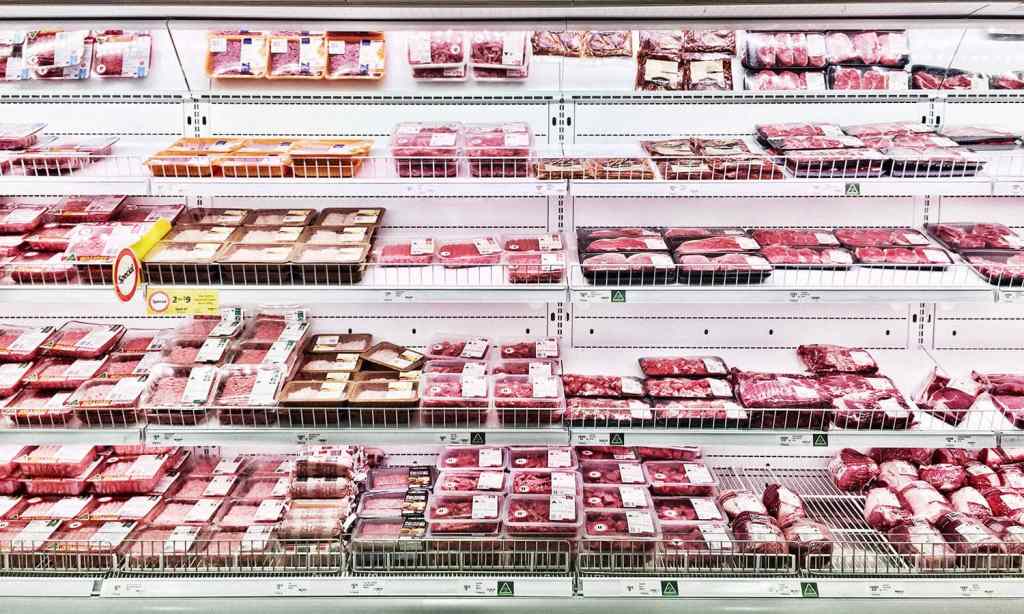Well, we’re back once again at the ‘shortages and panic buying’ phase of COVID except that this time it’s not the hoarding of toilet paper that’s causing issues but the delivery of meat.
One of the nations largest supermarkets, Coles, has introduced purchasing limits on a range of meat items to try and alleviate some of the supply chain disruption that they have been experiencing due to labour shortages.
With rising COVID numbers now hitting those who work in logisitics, bringing our favourite meals to the supermarkets amongst other things, workers have been required to isolate and there are fewer casual workers available to pick up the slack.
The result is that supermarket shelves have been running close to empty of late. This is hitting shoppers in NSW the hardest as the state records another day of nearly 35,000 cases.
In a statement to The Latch, a Coles spokesperson said that temporary puchase limits have been put in place in all Coles supermarkets as well as Coles Online and Coles Express “to help manage demand for key grocery items.” The limits are currently affecting every state and territory except for WA.
The limits so far include two packs per customer on mince, two packs of chicken breast, two packs of chicken thigh, and two packs of sausages. Coles also has a one pack per customer limit on rapid antigen tests.
“Coles will continue to monitor product availability and asks that customers buy only what they need,” the spokesperson said.
The issue is an industry wide problem that is affecting not just supermarkets. Economists have warned that all industries are at risk and that the situation could continue to worsen as more and more workers are struck down with COVID. The current, fast-spreading omicron variant is thought to be contributing to at least 80% of cases at the moment, causing rapid spikes in cases that are hitting workers all at once.
Other supermarket giant Woolworths have said that they too are experiencing delays in their supply chains but as of yet they have not imposed any purchasing limits, except on rapid antigen tests, which are also one pack per customer for a pack of up to seven.
Speaking to The Latch, a Woolworths spokesperson said that they “don’t believe product limits are needed at this stage” as customers have been shopping in reasonable quantities and only buying what they need.
“While we are experiencing some delays with stock deliveries to our stores due to COVID-19 impacts across the supply chain, deliveries continue to arrive daily,” the spokesperson said.
“Stores may have reduced availability of some products at points throughout the day before they receive their next delivery, however, we’re continuing to restock our shelves as often as possible. We ask our customers to be mindful of others and continue shopping normally as they have been.”
Woolworths has said that they will continue to monitor the situation closely for developments and any further delays to deliveries.
The Australian Meat Industry Council has said that the industry has been hit particularly hard by delivery driver shortages, with COVID infecting multiple workers at the same time.
“We’re seeing abattoirs and processing facilities on the eastern seaboard, either working at next-to-no staff or closed and that’s now causing gaps in our supply chain,” Australian Meat Industry Council CEO Patrick Hutchinson told the ABC.
“It’s all food that’s being affected here … farmers will be the ones who suffer.”
Hutchinson has called on the government to bring employee guidelines into line with that of healthcare workers, where asymptomatic close contacts are allowed back to work after just a few days off.
He has said that the impacts could still be being felt by the time January 26 rolls around, denying Aussies their traditional Australia Day barbie.
Read more stories from The Latch and subscribe to our email newsletter.







